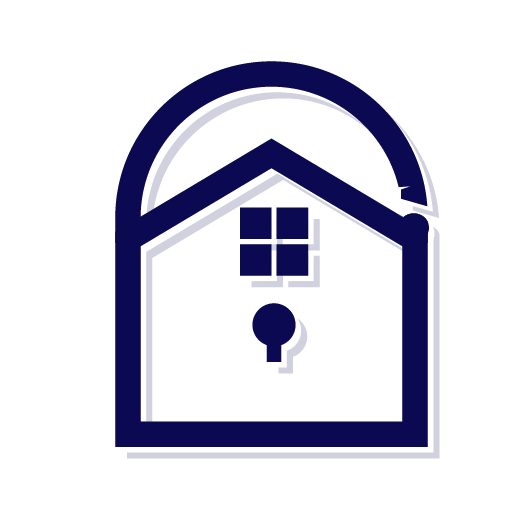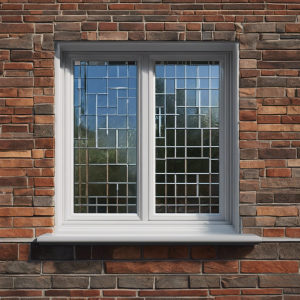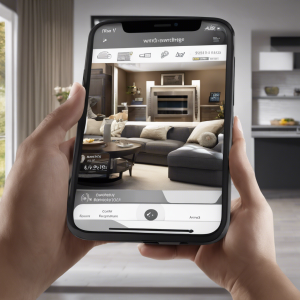Blockchain technology seems to have been everywhere. Blockchain turns out to be a great solution for many industries and it does improve quality of life.

But can this new technology (called Web3.0 by many enthusiasts) be useful for your smart home? In this article, we will find out.
What is blockchain?
People often associate blockchain with Bitcoin, Ethereum, and other altcoins. While it is true that NFT hype is all around, and if you buy Ethereum you get access to a whole new digital world, there is much more offered by blockchain. But what exactly is it?
Blockchain is an immutable, shared ledger that facilitates the process of recording transactions and tracking assets in a business network. Since transactions are added to the blockchain in sequence, it establishes trust and transparency between parties because people can verify transactions at any time by following the chain of blocks and comparing the records.
Smart Home Security Vulnerabilities
Internet of Things has brought us many good things. You don’t only look rich in the eyes of others – IoT brings in a lot of functionality in our lives.
However, it doesn’t come at a low price. There are plenty of obstacles and security concerns related to smart home systems.
1) Personal targeted attacks
Smart home devices collect tons of personal information that cybercriminals can steal via hacking if the devices lack robust protections to thwart attacks. Information including birth dates, credit card details, and much more can be stolen and used to carry out targeted attacks, as well as to worm their way into email clients, calendars, and other apps that contain sensitive information.
2) Property Damage
Smart devices are increasingly becoming a common household item, with a growing number of people using smart light bulbs, connected home appliances, and other such products. However, greater connectivity comes with greater security risks, and the more people rely on their devices for critical functions, the more vulnerable they become. A security breach might cause the intruder to damage your appliances or even cause a fire.
3) Home Intrusions
While it’s important to keep your home secure, it’s important to avoid impeding on your own security. Many of today’s popular smart devices suffer from well-documented security flaws, and if you add a smart door lock or surveillance camera to your home that isn’t up to date with patches, it could serve as an easy entry point for burglars.
4) Identity theft
There is something even worse than house break-in. Identity thefts are the next big thing of today. Suppose a hacker wants to steal your personal information from a smart device. In that case, they can target the database of the developer or manufacturer and get your data along with everyone else. If you are one of the users who has had their name, email address, or other personal information taken from the developer’s database, someone has likely stolen your identity.
How does blockchain improve smart homes security?
Blockchain has security at its core. It has come at a time when security risks were at their peak, and it is successfully implemented nowadays.
Let’s see how exactly blockchains prevent your smart home from being hacked.
1) Restricts access to unauthorized users
Blockchain technology is being used to establish a secure, decentralized network that allows each user access to data. Each user’s keys match specific nodes on the blockchain, and only access to the proper node is possible. This means that the data on the chain is private and not susceptible to hacks unless an extremely large amount of computing power is available, which would be needed in order to obtain individual records. While it is still possible, it is not very probable that 51% of the whole network will be hacked.
2) Decentralized nature tackles hackers obtaining control
A key reason why blockchain is so secure is that it segments and spreads information over a decentralized network distributed across the internet. Its decentralization makes it nearly impossible for hackers to find all the connected parts of the system; this means that even if they find one of the segments, they cannot gain access to the entire system. This prevents cybercriminals from shutting down your smart home by gaining control of its main functions or stealing your identity or other personal information.
3) No data manipulation
Blockchain has had a huge impact on information security. By cryptographically linking data and storing it across multiple servers, network-based attacks are no longer effective, because altering the information would require changing all of the records at once. This greatly reduces the likelihood of successful hacking attempts on smart home systems, which typically include access to home cameras, private life routines, shopping habits, and more personal information that you don’t want a criminal to have access to.
Summary
Home security systems are more than just physical installations. They’re also built on technology that needs to be secure and easy to use. As a homeowner, you want to feel like you have the best system possible to protect your family and property. That’s why there’s a rise in home security systems that leverage blockchain technology – this decentralized method of securely storing data means your system is safer than ever.



